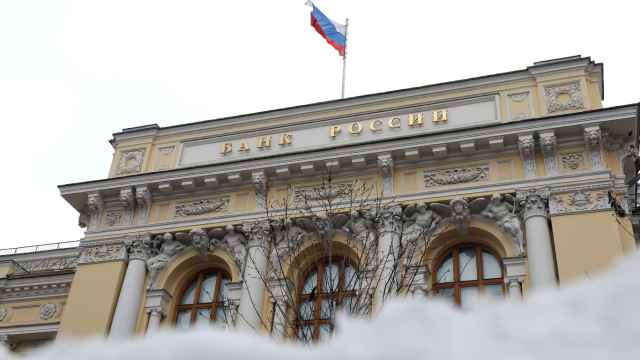Март: March (third month of the year in Russia since 1700)
I hate март (March). I am so sick of my winter clothing I want to shred it. I hate hat head — that anti-fashion look of hair smashed flat by headwear. I hate the boot dilemma: wear rubber boots and your feet are dry but frozen; wear snow boots and your feet are warm but wet. I long for colors other than brown (mud, tree branches, filthy cars) and white (untrammeled bits of snow). And I really hate the sudden rumble that turns into a roar as three tons of ice and snow slide-crash off the roof onto innocent cars and unfortunate pedestrians. I want to close my eyes, wave my magic wand and wake up in True Spring.
Over the millennia, Russians have not loathed March the way I do — presumably because hat head was not a sartorial issue in ancient Rus — but they have traditionally considered it a difficult month. The first problem is this: Март — не весна, а предвесенье (March isn’t spring but the prelude to spring). Иногда и март морозом хвалится (Sometimes March boasts of freezing cold). Hence: пришёл марток — надевай семеро порток (The month of March is on, and seven pairs of pants you must don). In case you were wondering, the old Russian word for pants was портки, from портно (a rough canvas cloth, now called полотно), which has also given us the word портной (a tailor; also the complaining hero of a Philip Roth novel).
But the weather of March is nothing if not changeable. Март у матери-зимы шубу купил, да через три дня её и продал (March bought a fur coat from Mother Winter and then sold it after three days). Or to use another metaphor: Март неверен: то плачет, то смеётся (March is fickle: Now it cries, now it laughs).
And it’s windy: Мартушка закрутит вертушку (March swirls the whirligig). And really wet and muddy: В марте и на корыте едешь (In March, you can travel in a trough).
On a brighter note, мартовская вода (March water), from мартовский снег (March snow), was believed to have medicinal — if not magical — powers. It was used for healing skin sores and jaundiced infants, washing away freckles and — most important — making the best beer: Мартовское пиво — самое лучшее! (March beer is the best beer!) It’s also an excellent remedy for hat head: A bucket of melted March snow was prized for its powers to strengthen hair. You can gather up a bucket in the park. Just avoid the yellow snow.
Because март зиму кончает и весну начинает (March ends the winter and begins the spring), this in-between month has always been carefully observed for signs of the summer and harvest to come. Если в марте вода не течёт, в апреле трава не растёт (If water doesn’t flow in March, the grass won’t grow in April). On the other hand: Сухой март предвещает плодородие, а дождливый — неурожай (A dry March portends a fertile crop, but a rainy March portends no crop).
So far I haven’t found a Feast Day or folk omen that predicts — or, more crucially, fails to predict — two summer months of rainless, windless, sweltering heat combined with peat fires, but I’m still looking. But, judging by the fact that air conditioners are already sold out, real Russians know something I don’t.
Maybe there was a sign in February.
Michele A. Berdy, a Moscow-based translator and interpreter, is author of “The Russian Word’s Worth” (Glas), a collection of her columns.
A Message from The Moscow Times:
Dear readers,
We are facing unprecedented challenges. Russia's Prosecutor General's Office has designated The Moscow Times as an "undesirable" organization, criminalizing our work and putting our staff at risk of prosecution. This follows our earlier unjust labeling as a "foreign agent."
These actions are direct attempts to silence independent journalism in Russia. The authorities claim our work "discredits the decisions of the Russian leadership." We see things differently: we strive to provide accurate, unbiased reporting on Russia.
We, the journalists of The Moscow Times, refuse to be silenced. But to continue our work, we need your help.
Your support, no matter how small, makes a world of difference. If you can, please support us monthly starting from just $2. It's quick to set up, and every contribution makes a significant impact.
By supporting The Moscow Times, you're defending open, independent journalism in the face of repression. Thank you for standing with us.
Remind me later.







